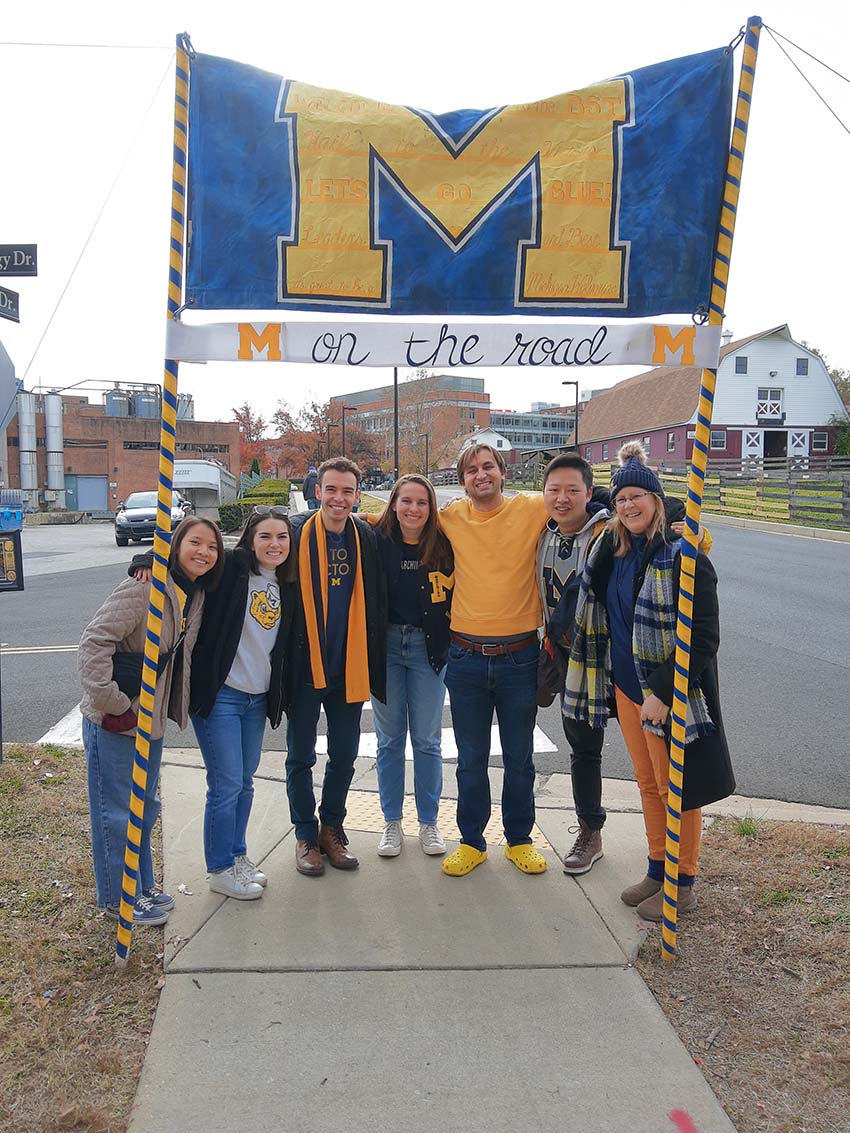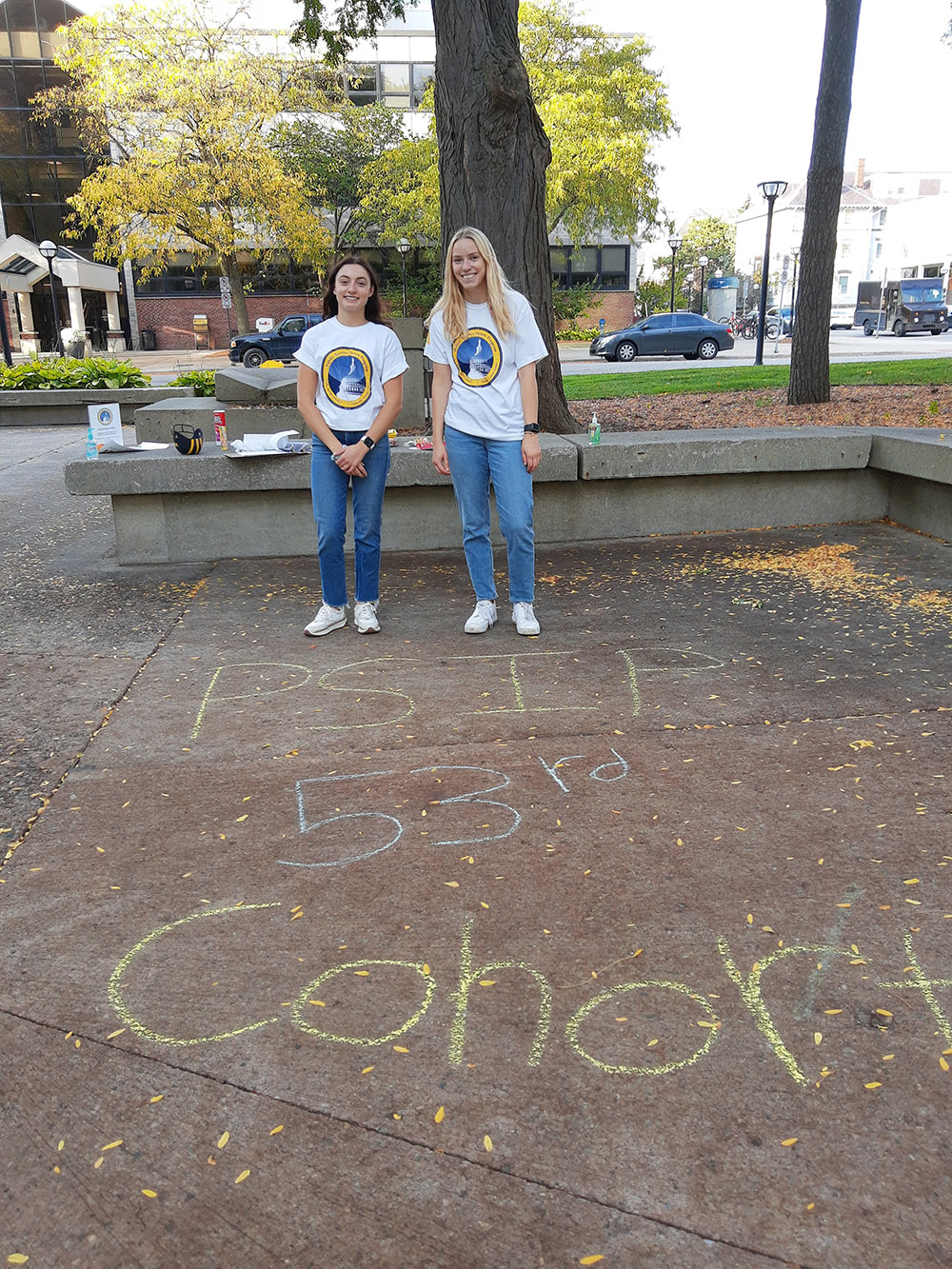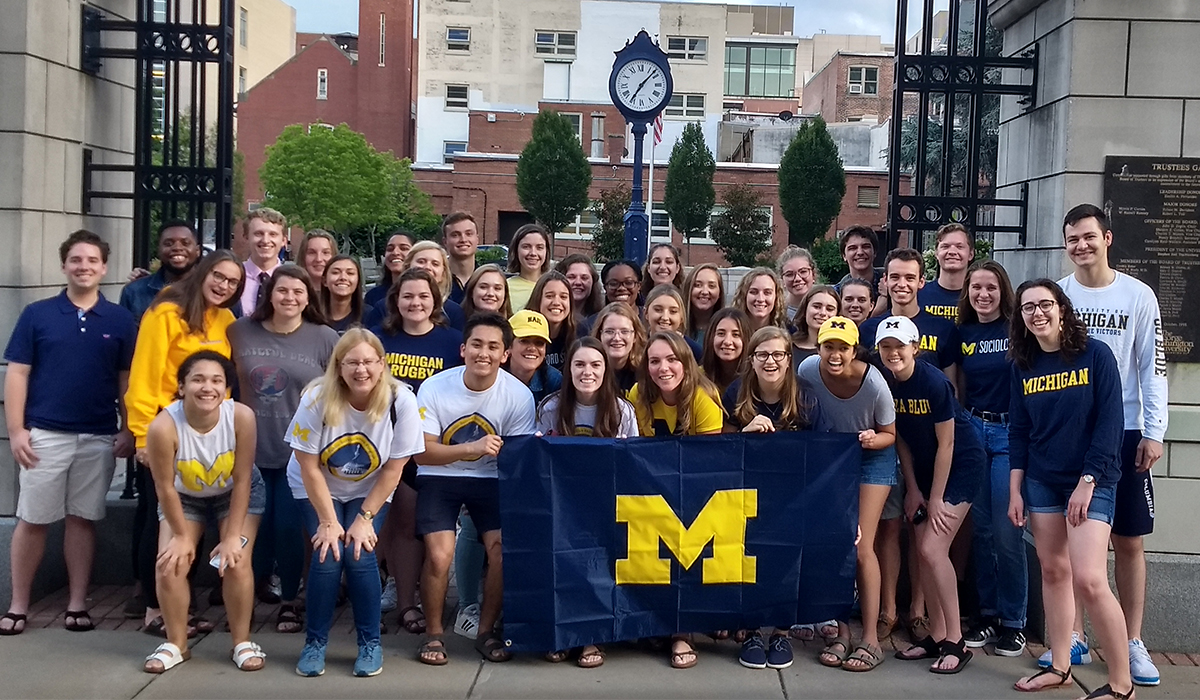During a high school trip to Washington, D.C., Sara Jex, ’21, took a tour of the Capitol that changed her life. “It was led by an intern,” recalls Jex. “She was just so cool, and the city felt full of energy. I knew then I wanted to be an intern in D.C. one day.”

Jex ended up applying to U-M specifically because of the Public Service Intern Program (PSIP). “One of my application essays was all about why I wanted to be in PSIP,” she remembers. In the fall of 2018, she was selected to be one of roughly 80 students in the program.
Founded in 1969, it is the oldest Washington, D.C., summer intern program in the country. The application and interview process take place each year in September, and students meet every two weeks throughout the academic year to learn professional development skills, such as writing resumes and prepping for interviews.
“I knew it would be a lot of work,” Jex says of PSIP. “I would have been doing it on my own anyway to get an internship, but this way I had guidance and support.”
Thanks to alumni who are eager to hire and connect U-M students with employers, the opportunities are numerous. Interns work in congressional offices, federal agencies, and nonprofits and for public relations firms and media outlets. (Nearly all PSIP internships have been remote the last two summers due to the pandemic.)
Samuel Rosenblum, ’21, accepted an internship last summer with “Meet the Press” and believes he was offered his current job with the digital media company Gizmodo because of that experience. “Saying you worked for ‘Meet the Press’ is a pretty good conversation starter,” he says.
He was not accepted into PSIP the first year he applied but persevered and was successful the following year. The program, he says, helped keep him motivated. “It pushes you to be proactive and organized,” he says, remembering how he put together a spreadsheet to track his progress.
Once in D.C., students live in a George Washington University residence hall. “It’s like freshman year all over again, except everyone has a strong political mindset,” says Jex, who was in the last cohort to live in D.C. before the pandemic hit. “You debate, cook, and clean together. It was the highlight of college for me.” The students also tour government buildings, experience briefings at policy agencies, and network with local alumni.
Career sessions with PSIP alumni are a program highlight. Had it not been for a PSIP alumna discussing working at a nonprofit, Jex would not have applied for the internship at Public Justice, a nonprofit advocacy group that ultimately offered her a full-time job in development that she accepted. “Before talking to her, I assumed I would just do something congressional,” she recalls.

At the opening reception each summer, PSIP interns are assigned a local alum who will act as their mentor for the next two months. In the past, such notable U-M alums as Eugene Robinson, ’74, HLHD’11, associate editor of The Washington Post, and U.S. Reps. Ted Deutch, ’88, JD’90, Lauren Underwood, ’08, and Grace Meng, ’97, have been speakers at the event.
The ultimate PSIP alum, however, is Lynn Halton, ’85, who supervises the program alongside PSIP student coordinators and staff at U-M’s Career Center. Halton was a work-study student at PSIP her first year at U-M, a PSIP intern at a U.N. agency, and later a PSIP student coordinator. “PSIP changed my life,” she says.
In celebration of PSIP’s 50th anniversary three years ago, Halton helped establish an endowment for scholarships. Though most internships are paid, some are not, and the cost for housing, food, and transportation can run as high as $5,000, says Halton, who hopes this year’s cohort will be back in D.C.
“Our schools and colleges help with scholarship money, but this endowment is key,” she says, adding that the number of applications increases each year and she does not want a lack of funds to limit participation. “These are students who want to learn policy and have an impact. They care about our society and world and want to make a difference.”
Jennifer Conlin, ’83, is a freelance journalist whose work has most recently appeared in Hour Detroit and The New York Times.





